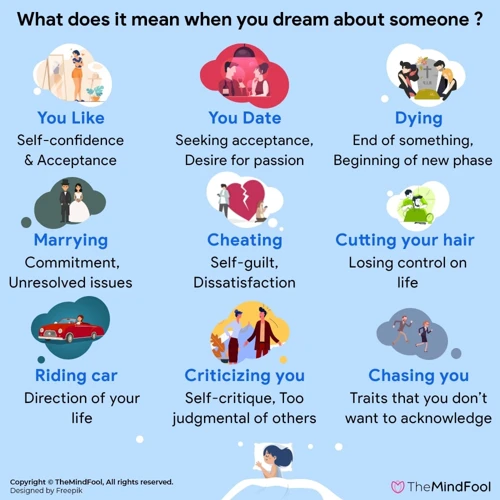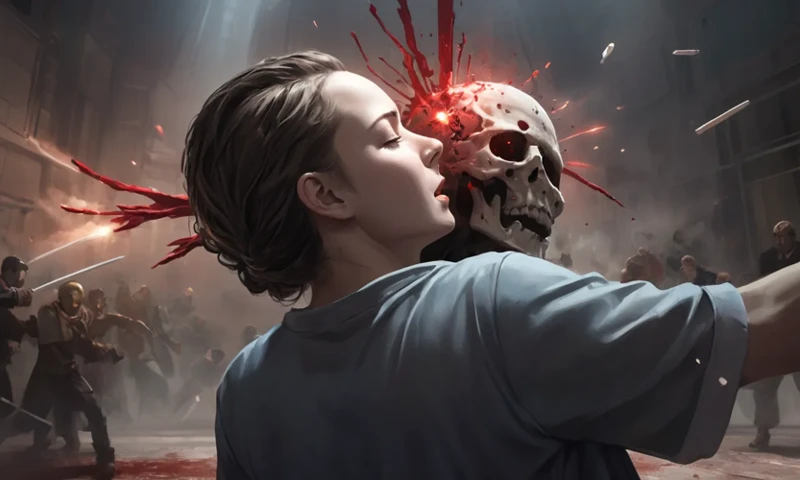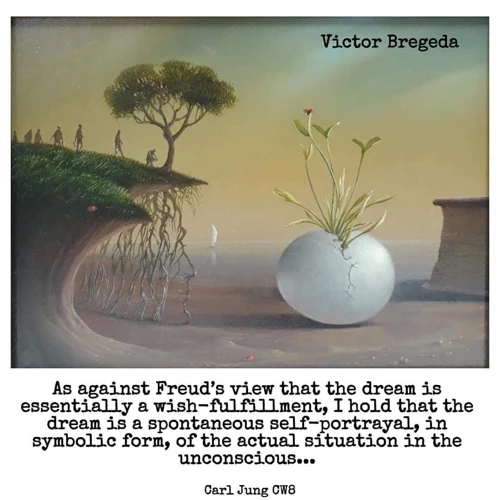Have you ever woken up from a dream where you found yourself confronting someone? These confrontational dreams can be both intriguing and unsettling, leaving us with questions about their meaning and symbolism. In this article, we will delve into the depths of these dreams, exploring the various interpretations and psychological perspectives surrounding them. Whether you’re facing off against a loved one, a stranger, an authority figure, or even a mysterious shadowy figure, we’ll provide insights into what these confrontations may represent in your waking life. By examining emotional responses, analyzing characters and settings, recognizing patterns, and delving into personal associations, we will uncover the transformative potential and personal growth that can arise from these powerful dream experiences. So, strap in and prepare to unlock the hidden messages lurking within your confrontational dreams.
What are Confrontational Dreams?

Confrontational dreams are a type of vivid and intense dream in which the dreamer finds themselves engaged in a confrontational situation with another person or entity. These dreams often elicit strong emotions and can leave a lasting impression upon awakening. Unlike regular dreams, confrontational dreams tend to involve direct conflict, argument, or confrontation with someone or something. They can take on a variety of scenarios and involve different individuals, ranging from friends and loved ones to strangers and authority figures. The symbolism and meaning behind these dreams can vary greatly, and exploring their significance can provide valuable insights into our subconscious thoughts and emotions. Understanding the nature of these dreams and the messages they convey can help us gain a deeper understanding of ourselves and our relationships.
The Symbolism behind Confrontation

Confrontation in dreams holds a deep symbolic meaning that extends beyond the surface-level conflict. It often represents the expression of repressed emotions and unresolved conflicts within ourselves. These dreams serve as a platform for our subconscious mind to bring these emotions and conflicts to our attention, urging us to address them in our waking life. Confrontational dreams can also reflect our need for assertiveness and establishing boundaries in our relationships. They may indicate situations where we feel unheard or disrespected, prompting us to assert ourselves and communicate our needs effectively. Additionally, these dreams can be influenced by external factors and interpersonal dynamics, such as conflicts at work or strained relationships. Exploring the symbolism behind confrontation in dreams allows us to delve into the depths of our psyche and gain valuable insights that can lead to personal growth and self-awareness. So, let’s uncover the hidden meanings and messages behind these confrontational dreams together.
1. Expression of Repressed Emotions
Confrontational dreams can serve as a powerful avenue for the expression of repressed emotions. When we suppress our feelings and thoughts in our waking life, they often find a way to manifest themselves in our dreams. Confronting someone in a dream can be a symbolic representation of our inner conflicts, frustrations, or unexpressed anger. These dreams provide a safe space for us to explore and release these pent-up emotions, allowing us to confront and address them in a controlled environment. The intensity of these confrontations can reflect the intensity of the emotions we have been suppressing. By acknowledging and processing these repressed emotions, we can gain a clearer understanding of our inner world and take steps towards emotional healing and growth.
2. Reflecting Internal Conflicts
Reflecting internal conflicts: Confrontational dreams can serve as a reflection of our internal conflicts and unresolved issues. The conflicts we experience in our dreams may symbolize the inner struggles we face in our waking lives. For example, a dream where we confront someone who represents a certain trait or characteristic we dislike could indicate a conflict between our own desires and values. These dreams provide an opportunity for self-reflection and self-exploration, allowing us to identify and address the internal conflicts that may be hindering our personal growth and well-being. By deciphering the symbolic meaning of these confrontations and analyzing the emotions and dynamics at play, we can gain valuable insights into our subconscious mind and work towards resolving these internal conflicts.
3. Need for Assertiveness and Boundaries
A confrontational dream that highlights the need for assertiveness and boundaries is indicative of underlying issues in our waking lives. These dreams may arise when we feel a sense of powerlessness or when our personal boundaries have been violated. The confrontations in these dreams can serve as a subconscious reminder to stand up for ourselves and assert our needs and desires. They may also reflect a desire to establish clear boundaries in our relationships and assert our independence. By recognizing the importance of assertiveness and setting healthy boundaries, we can enhance our self-confidence and ensure that our needs are met in both our dream world and waking life.
4. External Influences and Interpersonal Dynamics
External influences and interpersonal dynamics play a significant role in confrontational dreams. These dreams can be a reflection of the interactions and conflicts we experience in our waking lives. They may arise as a result of unresolved issues or tensions with other people, such as friends, family members, colleagues, or romantic partners. In some cases, the confrontations in our dreams may symbolize the need to address and resolve conflicts that we have been avoiding or ignoring in our relationships. The dream scenario and the individuals involved can offer valuable insights into the specific dynamics at play and the emotions associated with these interactions. By examining these external influences and interpersonal dynamics, we can gain a better understanding of the underlying issues and work towards building healthier and more fulfilling relationships. So, the next time you find yourself engaging in a heated confrontation in a dream, take a moment to reflect on the external factors and interpersonal dynamics that may be influencing your subconscious mind.
Common Scenarios in Confrontational Dreams

Confrontational dreams can manifest in various common scenarios, each with its own unique symbolism and significance. One prevalent scenario involves confronting a friend or loved one, capturing underlying tensions or unresolved conflicts within relationships. Another commonly experienced scenario involves confronting a stranger, reflecting feelings of vulnerability, fear, or unease in unfamiliar situations. Confrontations with authority figures are also common, representing power dynamics, submission, or rebellion. Additionally, dreams of confronting shadowy figures convey the presence of subconscious fears or repressed emotions. Exploring these scenarios and the emotions they evoke can help uncover deeper insights into our personal experiences and relationships, ultimately aiding personal growth and self-awareness.
1. Confronting a Friend or Loved One
Confronting a friend or loved one in a dream can be quite disconcerting. These dreams may indicate unresolved conflicts or tensions within the relationship. The confrontation could be a reflection of inner frustrations, unexpressed emotions, or unmet expectations. It’s essential to pay attention to the emotions experienced during the dream and the specific details of the confrontational encounter. Are there any ongoing issues or unresolved issues in your waking life that mirror this dream? Exploring the underlying emotions and dynamics can help shed light on the nature of the relationship and provide an opportunity for growth and improved communication. Understanding and addressing these issues can lead to healthier and stronger connections with our loved ones.
2. Confronting a Stranger
Confronting a stranger in a dream can be a perplexing and unsettling experience. In these dreams, we often find ourselves engaged in conflict or confrontation with someone we have never met before. The presence of a stranger in confrontational dreams can symbolize the unknown or unfamiliar aspects of ourselves or situations in our waking lives. It may signify our discomfort with unfamiliar situations or people. Alternatively, confronting a stranger in a dream could represent unresolved issues or repressed emotions that are manifesting in the form of a faceless or unknown entity. Exploring the context and emotions surrounding the confrontation can provide valuable insights into the underlying messages and meanings of these dreams. If you’re interested in exploring other dream topics, check out our article on the symbolism of dreaming of clouds or the interpretation of dreams involving cars or packing clothes.
3. Confronting an Authority Figure
Confronting an authority figure in a dream can be a particularly intriguing and potentially challenging experience. This scenario often presents itself when there is a power dynamic or a sense of imbalance in our waking lives. Confronting an authority figure in a dream may symbolize a subconscious desire to challenge or question authority, assert independence, or speak up for oneself in a situation where one may feel powerless. It could also reflect a need to address any feelings of fear or intimidation associated with figures of authority. By exploring the emotions and dynamics present in these dreams, we can gain insight into our own beliefs about authority and find ways to navigate these relationships more confidently and assertively in our waking lives.
4. Confronting a Shadowy Figure
Confronting a shadowy figure in a dream is a common and intriguing scenario that can carry significant symbolism. This figure often represents our deepest fears, repressed emotions, or unresolved issues within ourselves. In such dreams, the shadowy figure may appear menacing or mysterious, creating a sense of unease or fear. Confronting this figure signifies a willingness to confront and address these hidden aspects of ourselves. It is an opportunity for personal growth and self-discovery, as we face our inner demons and work towards resolution and healing. By bravely confronting the shadowy figure in our dreams, we can unlock our potential for transformation and move towards a greater sense of wholeness and self-acceptance.
Interpreting Confrontational Dreams

When it comes to interpreting confrontational dreams, it is important to pay attention to our emotional responses and triggers. Reflecting on how we felt during the dream and upon waking up can provide valuable insights into the underlying emotions and conflicts we may be experiencing in our waking life. Analyzing the characters and settings in the dream can also offer clues. Consider the identities of the individuals involved, their relationships to you, and the environments in which the confrontations take place. Recognizing patterns and recurring themes across multiple confrontational dreams can reveal underlying issues that need to be addressed. Additionally, exploring personal associations and past experiences can shed light on the symbols and situations encountered in the dream. Drawing connections between our dreams and real-life experiences can lead to a deeper understanding of ourselves and the conflicts we may be grappling with.
1. Emotional Responses and Triggers
– Emotions and triggers play a crucial role in understanding the meaning behind confrontational dreams. These dreams often evoke strong feelings, such as anger, fear, frustration, or sadness, which can provide valuable insights into our subconscious mind. Examining the specific emotions experienced during the dream and identifying any triggers can help unravel the underlying message. For example, if the dream involves confronting a friend and feeling intense anger, it could indicate repressed anger or unresolved conflicts in the waking relationship. Understanding these emotional responses and triggers can guide us towards resolving internal conflicts, improving relationships, and achieving personal growth.
2. Analyzing the Characters and Settings
Analyzing the characters and settings in confrontational dreams can offer valuable insights into their meaning and symbolism. Paying attention to the identities of the individuals involved can provide clues about the nature of the conflict and the emotions it represents. Consider the relationship between yourself and the person you are confronting in the dream. Are they someone you know in real life or a stranger? This can indicate whether the conflict is related to personal issues or external factors. Additionally, the settings in which the confrontations occur can offer further context. Are you in a familiar location or an unfamiliar environment? The setting may reflect specific aspects of your life or serve as a symbol for a particular situation or emotion. Analyzing both the characters and settings can help unravel the deeper meaning behind confrontational dreams and shed light on the unresolved conflicts or emotions within ourselves.
3. Recognizing Patterns and Recurring Themes
Recognizing patterns and recurring themes in confrontational dreams is an essential aspect of dream interpretation. By carefully examining multiple instances of confrontational dreams, we may identify common elements or motifs that appear across different experiences. These patterns can include specific settings, recurring characters, or similar emotional responses. Paying attention to these recurring themes can provide valuable clues about the underlying message or unresolved issues that require our attention. For example, if you frequently find yourself confronting authority figures in your dreams, it may indicate a struggle with power dynamics or a need to assert yourself in waking life. By noting and analyzing these patterns, we can deepen our understanding of the symbolism within our confrontational dreams.
4. Exploring Personal Associations and Past Experiences
When interpreting confrontational dreams, it’s essential to explore the personal associations and past experiences that may have influenced the dream’s content and symbolism. Our dreams often draw on our memories, emotions, and subconscious mind, so reflecting on our own unique experiences can provide valuable insights. Consider any similarities between the confrontational dream scenario and real-life situations. Are there any unresolved conflicts, unresolved emotions, or unresolved relationships in your life that may be manifesting in these dreams? Exploring these personal associations can help uncover hidden meanings and shed light on the underlying messages being conveyed by the dream. By delving into our past experiences and examining the emotions attached to them, we can gain a deeper understanding of the confrontational dreams we experience.
Psychological Perspectives on Confrontational Dreams

When it comes to interpreting confrontational dreams, several psychological perspectives offer valuable insights. Sigmund Freud, the renowned psychoanalyst, believed that confrontational dreams serve as a way for the subconscious mind to express repressed emotions and desires. In his view, these dreams offer a safe outlet for the individual to confront and
Subscribe to Our Newsletter
Sign up to receive the latest news and updates.
1. Sigmund Freud’s Psychoanalytic Interpretation
– Sigmund Freud’s psychoanalytic interpretation of confrontational dreams offers valuable insights into the unconscious mind. According to Freud, dreams are often symbolic representations of our repressed desires and unresolved conflicts. In the context of confrontational dreams, Freud suggests that the act of confronting someone in the dream may serve as a manifestation of our suppressed aggression or repressed emotions towards that person in waking life. Freud believed that dreams provided a channel for these repressed thoughts and feelings to surface, allowing us to explore and potentially resolve our inner conflicts. Additionally, Freud suggested that the characters and settings within the dream may represent different aspects of ourselves or individuals from our past, further symbolic of unresolved issues. These interpretations highlight the significance of examining our emotions and relationships to gain a deeper understanding of the messages conveyed in confrontational dreams.
2. Carl Jung’s Collective Unconscious and Archetypes
Carl Jung, a renowned Swiss psychiatrist, introduced the concept of the collective unconscious and archetypes as a way to understand the symbolism in dreams. According to Jung, the collective unconscious is a reservoir of universal knowledge and experiences shared by all humans. Within the collective unconscious, he believed there are archetypes – symbolic representations of fundamental human experiences and emotions. In the context of confrontational dreams, Jung proposed that these dreams could be manifestations of archetypal figures, such as the shadow or the anima/animus, representing suppressed aspects of ourselves or unresolved conflicts. By exploring the archetypes present in confrontational dreams, we can gain deeper insights into our own psyche and the underlying dynamics at play in our waking lives.
3. Other Psychological Theories on Dreams
Other psychological theories on dreams offer additional perspectives when it comes to interpreting confrontational dreams. Here are a few notable theories:
1. Activation-Synthesis Theory: This theory, proposed by J. Allan Hobson and Robert McCarley, suggests that dreams are simply the byproduct of random brain activity during sleep. According to this theory, the brain tries to make sense of these random signals and creates a narrative or storyline, which may include confrontations.
2. Cognitive Theory: This theory focuses on how dreams serve a cognitive function, helping us process and organize information. Confrontational dreams could be seen as a way for the brain to work through conflicts and problem-solving scenarios, allowing us to rehearse potential confrontations and find solutions.
3. Threat Simulation Theory: This theory suggests that dreams, including confrontational dreams, serve an evolutionary purpose of preparing us for potential threats. By simulating confrontations and other challenging situations, the brain can train and prepare us to respond effectively in similar real-life situations.
4. Neurocognitive Model of Dreaming: This model proposes that dreams reflect the ongoing activity of various brain regions during sleep. Different brain areas are responsible for different aspects of the dream, including emotions, memories, and sensory experiences. Confrontational dreams may arise from the activation of brain regions associated with conflict resolution and emotional processing.
While these theories provide different perspectives on the nature of dreams, it is important to remember that dreams are highly subjective experiences, and the interpretation of confrontational dreams may vary from person to person.
Meaningful Transformations and Personal Growth
Meaningful transformations and personal growth are common themes that emerge from confrontational dreams. These dreams have the potential to bring about positive change and development in our waking lives. By confronting others in our dreams, we are forced to confront aspects of ourselves that may be repressed or unresolved. As we analyze the emotions, characters, and settings within these dreams, we gain valuable insights into our own fears, desires, and relationships. Through this process of self-reflection and exploration, we can overcome fear, resolve internal conflicts, and develop healthier communication and assertiveness skills. Confrontational dreams serve as powerful catalysts for personal growth, highlighting areas where we may need to address unhealthy relationships or patterns. By embracing the messages and lessons from these dreams, we embark on a journey of self-discovery and positive change, ultimately leading to a more fulfilling and authentic life.
1. Overcoming Fear and Resolving Internal Conflicts
– Confrontational dreams can serve as opportunities for personal growth and development by helping us overcome fear and resolve internal conflicts. In these dreams, the act of confronting someone symbolizes our willingness to face our fears and confront the issues that are troubling us in waking life. By engaging in these confrontations within the dream, we are able to practice assertiveness and challenge the obstacles that hold us back. This process can lead to a greater sense of empowerment and the ability to tackle real-life situations with confidence. By acknowledging and addressing our internal conflicts through these dreams, we can work towards achieving inner peace and harmony. It is important to reflect on the emotions and actions experienced during the dream and apply them to our waking life, taking steps to confront and resolve any unresolved conflicts or fears that may be hindering our progress.
2. Developing Assertiveness and Communication Skills
Developing assertiveness and communication skills is a key aspect of personal growth that can be gleaned from confrontational dreams. These dreams often serve as a reminder that we may need to strengthen our assertiveness and communication abilities in our waking lives. When we confront someone in a dream, it may indicate that we have unexpressed thoughts, emotions, or needs that we’re struggling to communicate effectively. By reflecting on these dreams, we can identify areas where we may need to improve our assertiveness and find healthier ways to express ourselves. Confrontational dreams can push us out of our comfort zones and provide opportunities for growth, allowing us to practice setting boundaries, speaking up for ourselves, and resolving conflicts. Through these dreams, we are encouraged to develop more effective communication skills, leading to improved relationships and a greater sense of self-confidence.
3. Recognizing and Addressing Unhealthy Relationships
Recognizing and addressing unhealthy relationships is an important aspect of interpreting confrontational dreams. These dreams may serve as a wake-up call, highlighting any toxic or detrimental dynamics in our waking relationships. Paying attention to the emotional context of the dream and the behavior of the characters involved can provide valuable insights into our own feelings and experiences. If the confrontational dream involves a recurring pattern or the same individual, it could be a sign of unresolved issues or emotional baggage in the relationship. It is essential to reflect on these dreams and take action to address any unhealthy patterns or boundaries that need to be set. By doing so, we can pave the way for healthier and more fulfilling connections in our waking lives.
4. Self-Reflection and Self-Discovery
Self-reflection and self-discovery play a crucial role in understanding the meaning behind confrontational dreams. When we confront someone in our dreams, it prompts us to reflect on our own actions, beliefs, and values. It encourages us to examine our reactions, emotions, and the underlying issues that may have triggered the confrontation. These dreams serve as opportunities for introspection, allowing us to gain a deeper understanding of ourselves and our subconscious desires. Through self-reflection, we can uncover hidden aspects of our personality, unresolved conflicts, and areas for personal growth. Confrontational dreams serve as a catalyst for self-discovery, pushing us to confront our fears, face our inner demons, and ultimately strive for personal transformation and growth. By embracing the messages and lessons within these dreams, we can embark on a journey of self-exploration and empowerment.
Conclusion
In conclusion, confrontational dreams serve as windows into our subconscious minds. They offer an opportunity for self-reflection, personal growth, and exploring unresolved emotions and conflicts. By analyzing the symbolism, examining the characters and settings, and delving into personal associations, we can gain profound insights into our waking lives. Whether they represent the need for assertiveness, the expression of repressed emotions, or external influences, confrontational dreams hold valuable lessons and messages. Furthermore, psychological perspectives, such as Freud’s psychoanalytic interpretation and Jung’s collective unconscious, provide additional layers of understanding. By embracing these dreams and their meanings, we can navigate our internal landscapes and empower ourselves to make meaningful transformations. So, the next time you find yourself confronting someone in a dream, remember that it may be an invitation for personal growth and discovery.
Frequently Asked Questions
1. Why do I keep having confrontational dreams?
Confrontational dreams can occur for a variety of reasons. They may be a reflection of repressed emotions, internal conflicts, or a need for assertiveness and boundaries. External influences and interpersonal dynamics can also play a role in the occurrence of these dreams.
2. Are confrontational dreams a sign of unresolved issues?
Yes, confrontational dreams can often be a sign of unresolved issues. They may indicate underlying conflicts or tensions that need to be addressed in your waking life. Exploring and resolving these issues can lead to personal growth and a sense of closure.
3. What should I do if I consistently have confrontational dreams?
If you find yourself consistently having confrontational dreams, it can be helpful to keep a dream journal and record your dreams upon waking. Reflect on the emotions and symbols present in the dream, and consider seeking guidance from a therapist or dream expert to gain further insights.
4. Can confrontational dreams be a manifestation of anxiety?
Yes, confrontational dreams can be a manifestation of anxiety. They may represent underlying fears and worries that you are dealing with on a subconscious level. It is important to address the root causes of anxiety and find healthy coping mechanisms.
5. Do confrontational dreams always have a negative meaning?
No, confrontational dreams do not always have a negative meaning. While they may initially seem unsettling, these dreams can serve as opportunities for personal growth and self-discovery. They can help us confront and address challenging emotions or situations in a safe dream environment.
6. Can confrontational dreams be influenced by past experiences?
Absolutely, confrontational dreams can be influenced by past experiences. These dreams may draw upon memories, unresolved conflicts, or significant events from your past, providing a platform for exploration and healing.
7. How can I interpret the symbolism in confrontational dreams?
To interpret the symbolism in confrontational dreams, pay attention to the emotions and reactions within the dream. Analyze the characters and settings, as well as any recurring themes or patterns. Consider personal associations and past experiences that may be reflected in the dream.
8. Can confrontational dreams help me address unhealthy relationships?
Yes, confrontational dreams can provide insights into unhealthy relationships. They may shed light on issues such as power dynamics, lack of boundaries, or unresolved conflicts within these relationships. Recognizing these patterns can empower you to make positive changes and establish healthier connections.
9. Are confrontational dreams a form of self-reflection?
Yes, confrontational dreams can be a form of self-reflection. They may serve as a mirror, allowing you to explore aspects of yourself, such as hidden fears, unexpressed emotions, or the need for self-assertion.
10. Can I learn from and grow through confrontational dreams?
Absolutely! Confrontational dreams have the potential to offer valuable life lessons. By addressing the underlying emotions and conflicts presented in these dreams, you can overcome fears, develop assertiveness and communication skills, improve relationships, and embark on a journey of self-discovery and growth.










